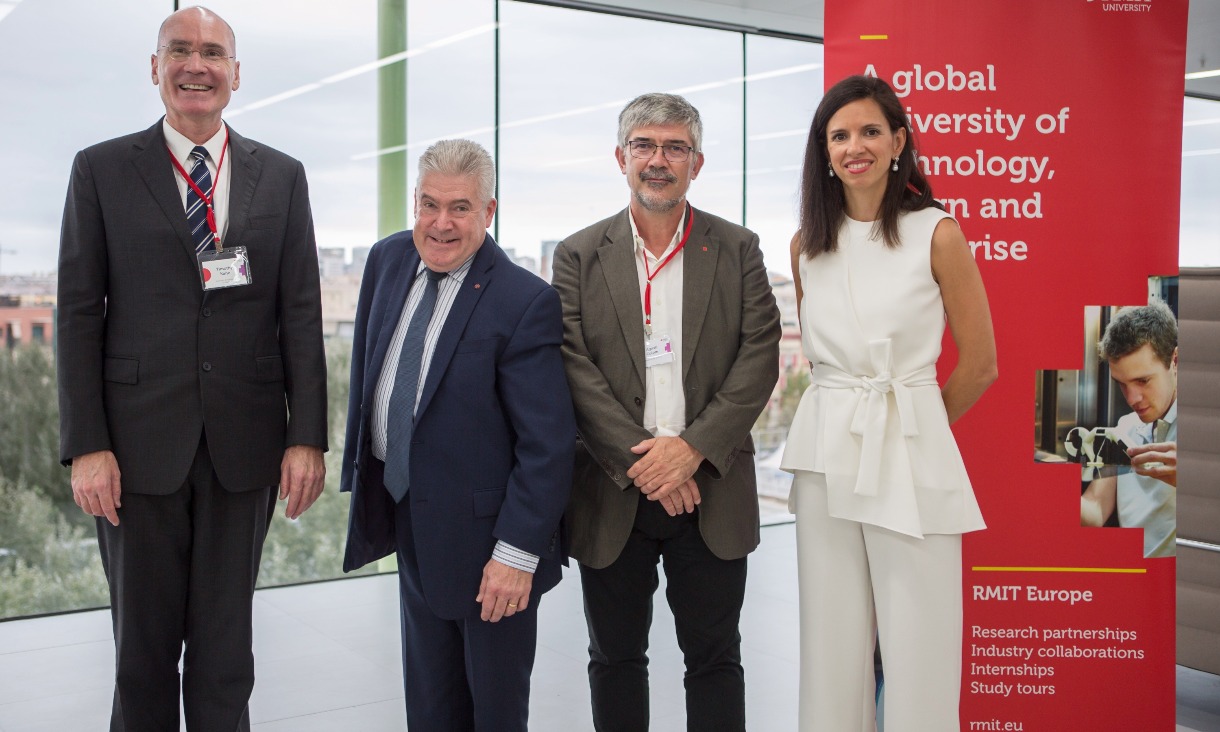The program welcomes two poets-in-residence per year – an Indigenous poet by invitation and a regional poet selected from a national call-out.
Upcoming Indigenous poets and essayists will get first-hand advice and feedback from Whittaker when they meet her at drop-in consultations on campus next week.
Onn Monday 13 August Whittaker will give a public reading of her next book BLAKWORK – described as a mix of memoir, reportage, fiction, satire and critique.
Ahead of her visit, RMIT News spoke with Whittaker.
How did you become interested in poetry and writing?
I can’t pinpoint the moment. I remember I used to read hungrily when I was young — and it just seemed like the natural progression!
Language is really exciting to me, and when I went to university I studied it alongside law.
Being able to see the power in both made me also want to practice poetry as a form of advocacy in the same way one might practice law — purposively.
So, I wrote a collection and went from there!
What do you love about poetry and writing?
I wouldn’t do it if I didn’t think it was worthwhile — and I don’t want to seem ungrateful for or flippant about what poetry has done for me and others — but I can’t say I love it.
I think poetry is good at doing the stuff we want it to do only when we commit and work on making it do it. That’s a responsibility.
Lots of what poetry does, just like journalism and fiction, can only be done because of distribution and purpose, and because of its readers and its context.
It’s the work that’s done beyond the page. It transforms language if we let it. It speaks to power if we make it. It sustains us if we know what we’re hungry for and use poetry to cook it.
What inspired you to help the next generation of poets?
No inspiration needed!
Others shared their resources with me, so the natural and right part of the ecology is to share those on now that I’m a bit more established.
It’s a real joy to see their stuff get punchier, warmer and more precise than anything I could ever do!
What are you hoping upcoming poets will get out of the drop-in sessions?
Anything they want! I’m an open book, but I don’t want to presume they’re going to seek particular things from me.
I hope they ask tough questions, show me stuff I’ve never seen before.
I reckon that wherever we meet and whatever we bring to one another that, in the act of seeking something and being sought, it can become more than the sum of its parts.
How can poetry help tell Indigenous stories?
A tricky question to answer in a generalist way — which is the only way I can here.
I guess, in the same way that any medium can, but in the precision of meaning-making that comes through the language and form of poetry we can do a lot of cultural, community and political work with very little.
The Melbourne Visiting Poet’s Program is funded by the Australia Council for the Arts and run as an industry collaboration between RMIT’s non/fictionLab, Australian Poetry, Rabbit journal and Melbourne Spoken Word.
Whittaker’s BLAKWORK will be published in September by Magabala Books.
Story: Aeden Ratcliffe
BLAKWORK: A reading and yarn with Alison Whittaker
Date: Monday 13 August
Time: 6–7.15pm
Venue: The Wheeler Centre, 176 Little Lonsdale Street, Melbourne
Tickets are free but you need to register.





